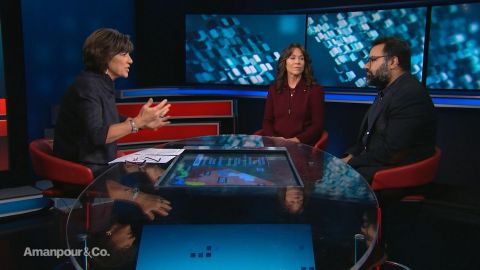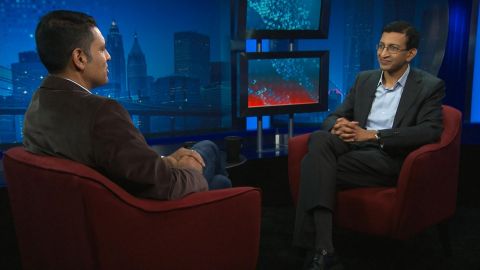Read Transcript EXPAND
CHRISTIANE AMANPOUR: Are you saying this was happening anyway or is it getting worse now?
SHIRAZ MAHER, DIRECTOR, INTERNATIONAL CENTRE FOR THE STUDY OF RADICALIZATION: Well, I think we can say it’s definitely getting worse. It’s getting more acute. Clearly, there were attacks and pressures on the SDF prior to this. But nonetheless, the region that they were controlling was still the most stable part of Syria and they had adequate resources to address some of this. They themselves were saying, we are off a stretched. We would like the West to take responsibility for the citizens who are in detention. We would like them to be repudiated home to face justice, and so on. The West did not quite do that. But now, given the fact of the pressures they’re facing in Turkey, there will be a reprioritization of resource and of manpower to address that issue.
AMANPOUR: And the SDF, Kori, is obviously the Syrian Defense Forces, these Kurds who are helping, right, the United States. Just put it in perspective, what have they been doing for the last several years for the U.S. and the coalition against ISIS?
KORI SCHAKE, DEPUTY DIRECTOR, INTERNATIONAL INSTITUTE FOR STRATEGIC STUDIES: They have been the ground force doing the fighting for the defeat of ISIS. And you can see it in the casualty figures. The United States suffered five casualties in the anti-ISIS campaign, the SDF suffered over 11,000. They have been doing the hard, dangerous work and we have just abandoned them.
AMANPOUR: Five American, five versus 11,000-plus on the Kurdish side?
SCHAKE: Yes.
AMANPOUR: What does this mean for American policy going forward and for the geopolitical reality in the region given that the Kurds have always come up against the Turks, the Iraqis, I mean, they have basically nowhere to go and all the major countries consider them rightly stateless and they consider them terrorists?
SCHAKE: Well, I think that the first thing is to separate, again, the Kurdish people of Northern Iraq, of Syria, of Iran and of Southern Turkey from terrorist forces that are fighting on behalf of their liberty because it’s the civilian population that is going to bear an enormous amount of the unpleasantness that the United States has just delivered them into with President Trump green lighting the Turkish invasion. The second thing is that Bashar al-Assad has now effectively won the best civil war in Syria, that the Kurdish forces in Syria felt the need to make a bargain with Bashar al-Assad because they thought they were going to be better off under Assad than they were going to be under Turkish control, which tells you a ton. And I guess the third I would say is that, the next time the United States needs to round up a posse and get other countries, not just the SDF and the regional countries but with left Britain and France in the lurch. There are 81 countries fighting in the anti-ISIS coalition. We didn’t inform any of them of this decision.
About This Episode EXPAND
Shiraz Maher and Dr. Kori Schake join Christiane Amanpour to analyze the situation in Northern Syria. Jane Fonda discusses her activism combatting the climate crisis. Raj Chetty tells Hari Sreenivasan how he’s harnessing data to propose solutions to economic inequality.
LEARN MORE


